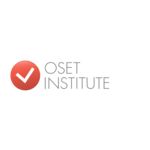
OSET Institute Releases “Murphy’s Guide to Likely Dysfunction in the 2022 Midterm Election”
PALO ALTO, Calif.–(BUSINESS WIRE)–#FundDemocracy–The 2022 Midterm Election on November 8, 2022 is rightly anticipated to be one of the most divisive and consequential elections in recent U.S. history. Turnout is expected to be record setting, even in the midst of rampant election denialism, destruction from natural disasters, and conditions that have radically upended election administration across America.
As it has in the past two election cycles, the OSET Institute has published the “Murphy’s Guide to Likely Dysfunction in the 2022 Midterm Election” in order to put a spotlight on the range of possible issues for the upcoming Midterm Election.
While many of the issues in elections are caused by glitches or errors in both the election process and voting system technology, there are new threats to recognize and plan for, even with only a week to go before the elections.
However, this midterm election has the potential to be fraught with issues, claims, and chaos in the days and weeks following election day. Several of the concerns raised in this new guide will likely be sources of allegations, claims, and chaos in the post-election weeks as races are settled and certified. On top of that, many elections administration processes have changed across the country in response to an influx of candidates refusing to accept election results and subsequently attempting to block the certification of the last election itself. In fact, almost half of the 552 nominees running for Congress and state races for Governor, Secretary of State, and Attorney General, have stated their denial of the results from the 2020 election and already expressed their doubts about accepting the 2022 midterm results.
The guide, which can be viewed here, illustrates a combination of threats:
- Manufactured chaos — coordinated attempts to interfere with — and potentially overwhelm — normal election administration in order to undermine public trust and confidence in the election results, even as it is sold as a way to protect election integrity;
- Turnout suppression tactics, including stalking voters at drop boxes and challenging voters’ registration status at the polls;
- Increased threats and harassment of election officials, including physical threats, frivolous freedom of information requests, lawsuits, and nebulous “forensic” audits;
- Actual cyber-attacks: penetrating election IT infrastructure through various methods;
- Inevitable human error and technical malfunctions; and
- Historically low levels of voter trust that have created multiple opportunities for disinformation campaigns, especially through social media.
“Unfortunately, we are convinced this midterm election will be fraught with issues, claims, and chaos in the days and weeks following November 8,” Gregory Miller, OSET Institute co-founder and Chief Operating Officer, said. “While we don’t want to be amplifiers of doom and gloom, we hope this guide is a useful resource for policymakers, the media, and election stakeholders, to consider future initiatives to restore public confidence in the elections process, to clearly report on the issues that arise, and to protect the accuracy and legitimacy of all elections going forward.”
OSET Institute experts in election administration and related technology and process are available to discuss any or all of these issues upon request.
About the OSET Institute
The OSET Institute is a tax-exempt 501(c)(3) non-profit non-partisan election technology research, development and education organization founded in late 2006, based in Silicon Valley. A team of veteran technologists leads the Institute with extensive software, hardware and systems design experience from well-known companies including Apple, Mozilla, Netscape, Sun Microsystems, Google and elsewhere. The Institute’s mission is to increase confidence in elections and their outcomes through research, development, and advancement of publicly-available election administration technology, election cybersecurity, and related public policy in defense of democracy and as a matter of national security. The OSET Institute’s TrustTheVote® Project builds publicly-owned software technology, such as the 3rd party voter registration platform used by RockTheVote™ and GOTV operations for all parties, and provides other election administration technology to governments. Work is based on open-source principles and practices to ensure this critical government technology is an imperative public asset.
Contacts
Abigail Silverman | 978.273.3875 | asilverman@sloweymcmanus.com, pr@osetinstitute.org